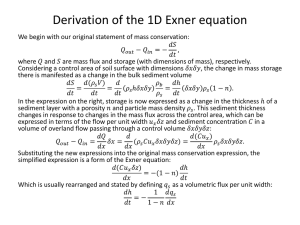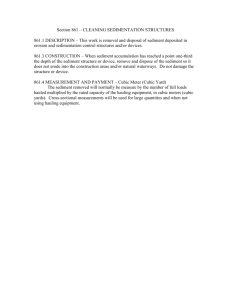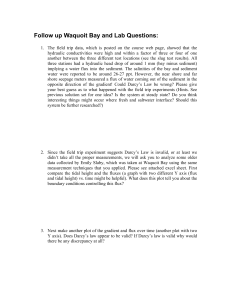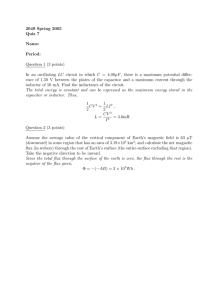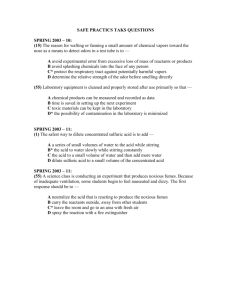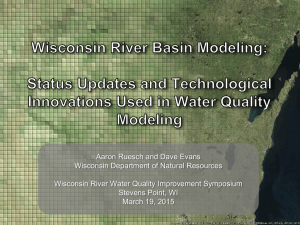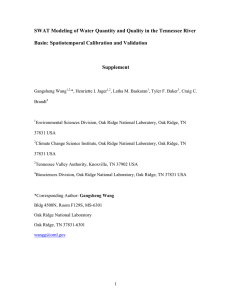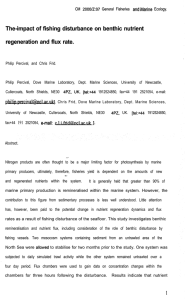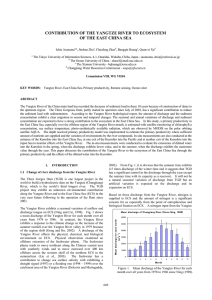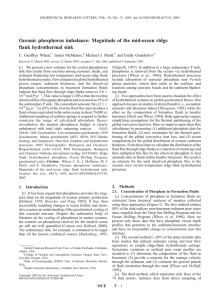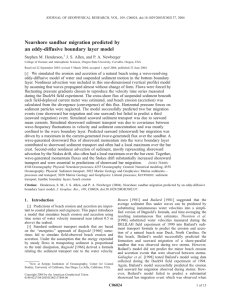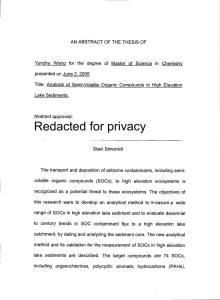The MyLake model • Inputs Outputs
advertisement
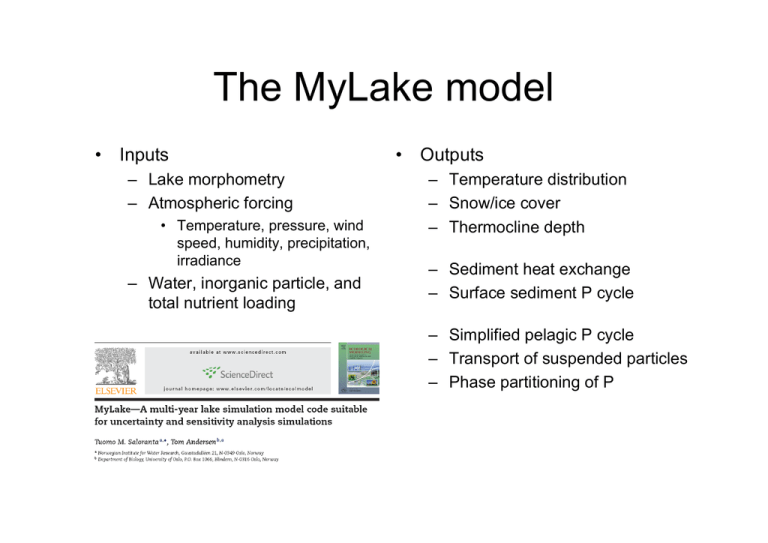
The MyLake model • Inputs – Lake morphometry – Atmospheric forcing • Temperature, pressure, wind speed, humidity, precipitation, irradiance – Water, inorganic particle, and total nutrient loading • Outputs – Temperature distribution – Snow/ice cover – Thermocline depth – Sediment heat exchange – Surface sediment P cycle – Simplified pelagic P cycle – Transport of suspended particles – Phase partitioning of P MyLake: Global energy balance MyLake: Local energy balance Temperature change • Diffusive flux Heat flux 1-dimensional partial differential equation (PDE) – Implicit, finite-volume numerical solution scheme (daily time step) • Boundary conditions: surface and sediment heat fluxes – Local weather station or WMO reanalysis data (daily averages) • Freely available Matlab code – R version in development Vansjø – a lake with complex morphology Can the dynamics of Vansjø be captured in just one spatial dimension (depth)? Vansjø: Temperature, ice cover 10 years = 134 cpu seconds (1.7 GHz Pentium) MyLake: Plankton Inorganic P change Diffusive flux Net P uptake ∂PD ∂PD ⎤ ∂ ⎡ −1 = ⎢ KA − A Ay c rPChl ⎥ ∂t ∂z ⎣ ∂z ⎦ ∂PChl ∂PChl ⎤ ∂ ( wPChl ) ∂ ⎡ −A A + A(rPChl + S Csed ) = ⎢ KA ⎥ ∂t ∂z ⎣ ∂z ⎦ ∂z Chlorophyll change Diffusive flux Sedimentation flux Local net growth MyLake: P cycle • Biological processes – Growth / uptake – Mineralization • Physical / Chemical – – – – Phase partitioning Sedimentation Resuspension Burial Vansjø (Storefjorden) calibration • • • Sensitivity analysis Æ identify calibration parameters Calibration to monitoring data 1985-2000 Calibration limited by missing winter data and low temporal frequency of loading data MyLake: future directions • Integration with forcing models – Catchment processes • Runoff • Nutrient export • Particle transport – Atmospheric forcing • Weather generator • Climate change effects, land-use changes, management options • Improving state and process representation – Plankton model • Other limiting factors • >1 algal groups • Higher trophic levels – Sediment model • P release mechanisms – pH / HCO3 system – O2, oxic / anoxic • Sediment diagenetics – O2, organic C balance
